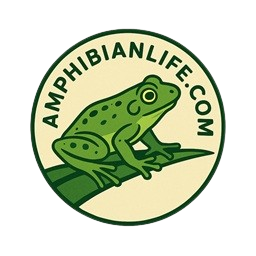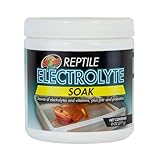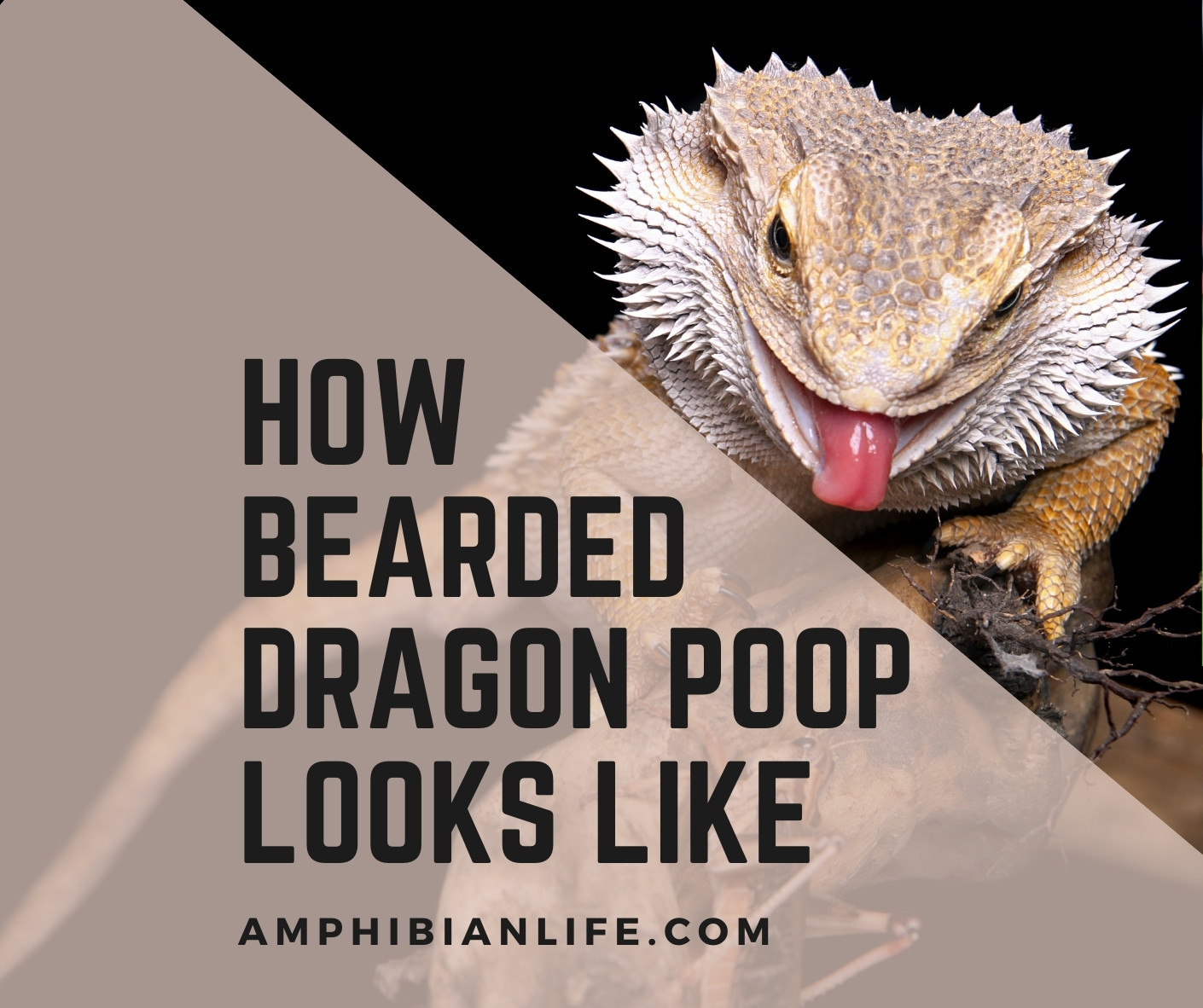
How Does Bearded Dragon Poop look like? How Often Do Beardie’s Poo?
Be it for humans or animals; poop is one great indicator for overall health. And when it is about the Bearded dragons, understanding their poop is one vital part of their care. However, the process is not as simple as it may sound.
While you are a new Bearded dragon parent, you need to learn about their overall well-being.
Be it their habitat, hobbies, personality, feeding requirements, or poop, every aspect is equally important.
Once you have an idea of how a bearded dragon poop looks, you will learn to notice irregularities.
So that being said, if you are looking forward to pet a Bearded dragon or even learn about them, here’s everything about their poop.
The guide contains every basic to intense information. Hence, without any further ado, let’s get started.
How does a bearded dragon poop look like?
A Bearded dragon poop is brown in colour with a white tip on its one end. It looks quite similar to a
Leopard Gecko poop and is almost the same in size. Bearded dragon’s poop, when healthy, should look log-shaped, rich brown, and firm. The white tip (white urate) should look soft, it must not smell foul.
While a little change in poop colour is quite common, some drastic changes can prove a concern.
Changes in the amount of poop, size, consistency, and even the odour are signs of problems with your bearded dragon.
How Often Should a Bearded Dragon Scat?
For the number of times a Bearded dragon should poop, there aren’t any fixed facts.
The frequency of poop can depend upon several factors like
- age,
- diet,
- environment,
- hydration,
- stress,
- illness.
Adult bearded dragons should poop at least once per week. However, some individuals can poop up to seven times a week.
How often should a baby bearded dragon poop?
Baby Bearded dragons who are up to 3 months old should poop at least once and a maximum of 3 times a day.
Their poop can size anywhere from 3 to 11 inches depending upon their exact age (months).
How Often Should a Young Bearded Dragon Poop?
Young bearded dragons mean the ones who are 4 to 18 months old. They will likely poop every day or every other day.
The ones who are near to touching the age of 18 months might at times go 2 to 3 days without pooping.
How Often Should an Adult Bearded Dragon Poop?
Adults Bearded dragons who are 18 months will poop 1 to 7 times a month.
If your adult bearded dragon feeds on a calcium-rich diet daily, he will likely poop every day.
- Fluker’s Calcium Reptile Supplement with added Vitamin D3
- A premium calcium supplement for reptiles and amphibians that are kept indoors
- Provides the calcium your pet needs for strong, healthy bones and vital bodily functions
- Added vitamin D3 ensures your reptile absorbs the calcium properly
- For use on feeder insects and can be mixed with food
- All-natural source of clean calcium that is safe and effective for your pet
However, if they are on veggie and other insect diets, they will poop 1 to 3 times a day.
In short, it is important to know that every Bearded dragon is different; thus, their pooping frequency can vary.
However, if the number goes changing drastically, the matter should concern you right away.
All About Bearded Dragon Turd: Color, Texture, and More
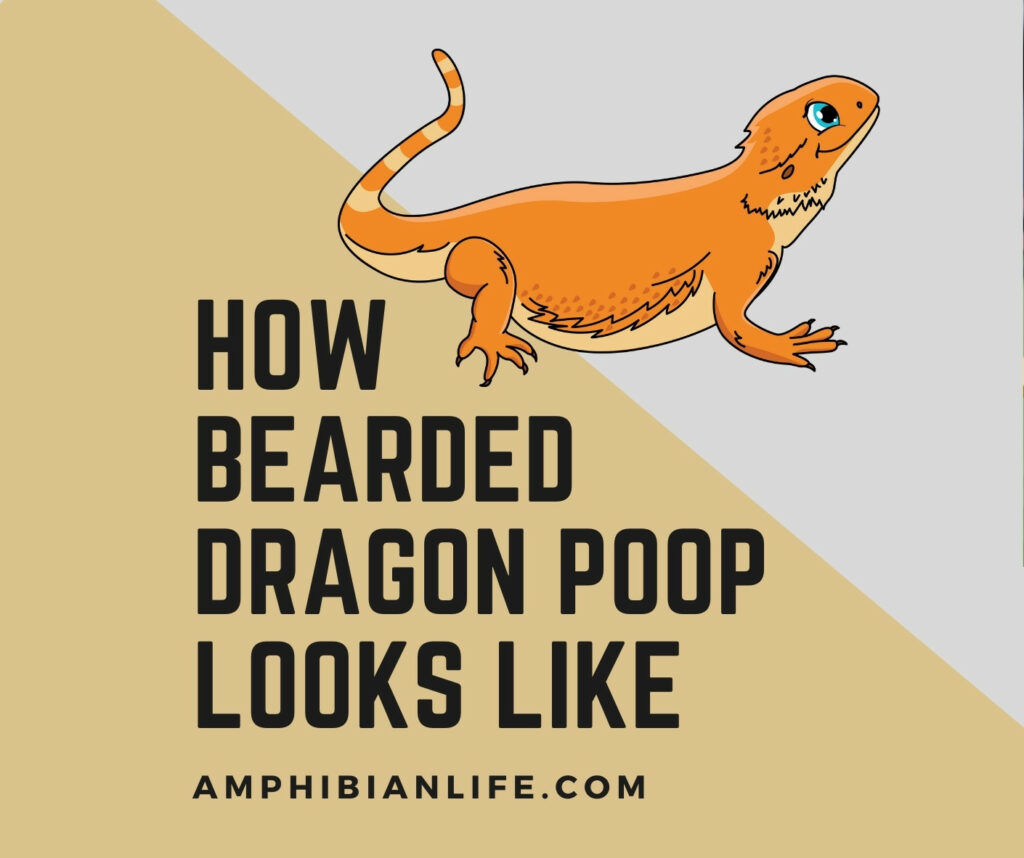
8 Types of Bearded Dragon Poop+meanings
Healthy Bearded Dragon Feces
Bearded dragons turd and urate together, and hence the by-product should always come together.
While their poop is brown, the urate (uric acid) is white or yellowish in colour.
A healthier poop means a log-shaped hard brown portion with glossy and soft white tips.
Un-Healthy Bearded Dragon Poop
#1 Bearded Dragon Runny Poop
Bearded dragons have runny poop either due to dehydration or parasitic infection.
Dehydration, diet changes, and a bad diet can lead to diarrhoea in bearded dragons.
While introducing a new diet, if you notice runny stool, wait as it will settle down in a few days.
However, avoid feeding high fibers food in large proportions to your pets. Once your
#2 Bearded dragon over hydrated poop
Parasitic infection in bearded dragons can lead to extreme health downfall.
Further, if you notice mucus or a bad smell in stool, these are signs of parasitic infection.
Loss of appetite, lethargy and weight loss also indicates the same. In any such case, connect with an exotic vet expert as soon as possible.
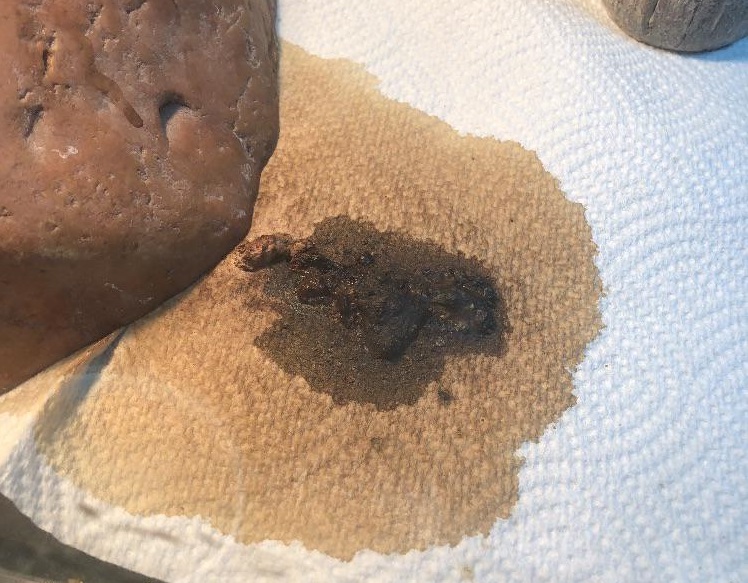
#3 Bearded Dragon White Poop
Chalky white poop either means that your bearded dragon is overly hydrated or dehydrated.
When their entire poop is more on the whiter side, place them in the bath for 15 minutes and let them moisturize and rehydrate themselves.
Also, maintain tank temperature at 105-degree Fahrenheit and serve them water to drink.
However, if they are only releasing the white part of their poop, that is, urate, it means they are overly hydrated.
Releasing only the white part also means eating less food. Here consider serving them enough calcium-rich food and avoid a fibrous diet.
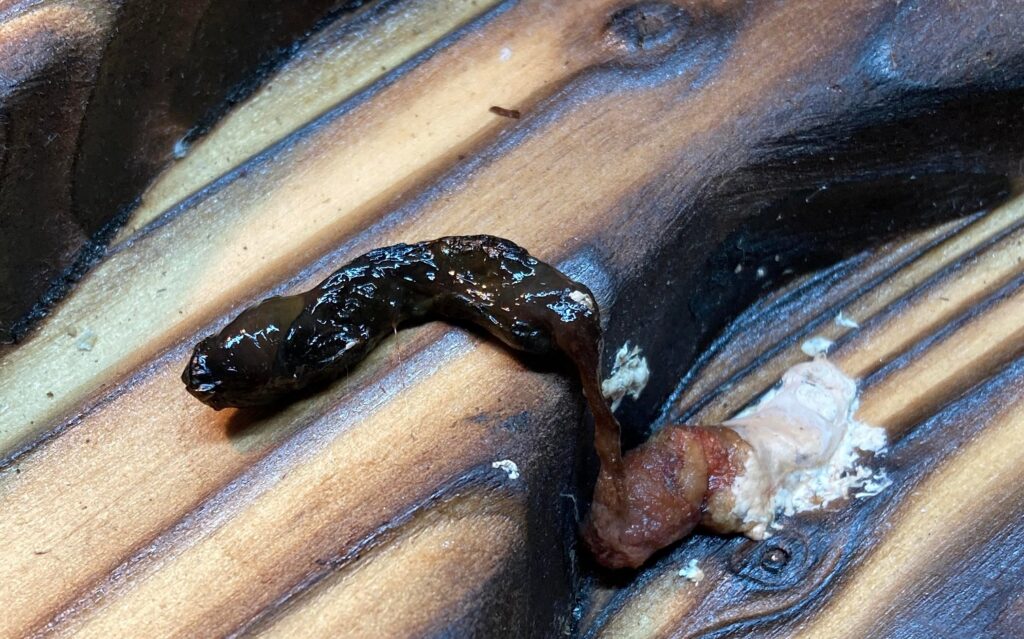
- Zilla Reptile Health Supplies Vitamin Supplement Food Spray
- ESSENTIAL VITAMINS FOR REPTILES. A simple spray on your pet’s daily food provides them with nutrients needed by reptiles and amphibians.
- QUICK AND EASY SPRAY APPLICATION, simply spray onto your reptile’s food and wait 15 seconds.
- PROMOTES CALCIUM METABOLISM. Vitamins help support calcium metabolism, a necessary function for reptiles.
- MADE FOR REPTILES; ideal for bearded dragons, geckos, chameleons, water dragons, tegus, monitors, boas, pythons, corn snakes, frogs, toads, box turtles, tortoises, hermit crabs and more.
- COMBINE WITH ZILLA CALCIUM SPRAY for best results and comprehensive nutritional support.
#4 Blood In Bearded Dragon Dropping’s
Blood in bearded dragon poop is a matter of high concern. However, first, make sure it is blood and not the red particles from beetroot or raspberries you fed them.
If red stool comes only once, you can choose to ignore them. However, if the process repeats, it is advisable to observe them closely and meet your vet soon.
Blood in the stool can indicate hemorrhage in the stomach, internal bleeding, or parasitical injury.
At times the insects you feed to your pet can tear or rupture the wall of their intestine.
If any such symptoms occur in your bearded dragon, do take their stool for a test at your vet.
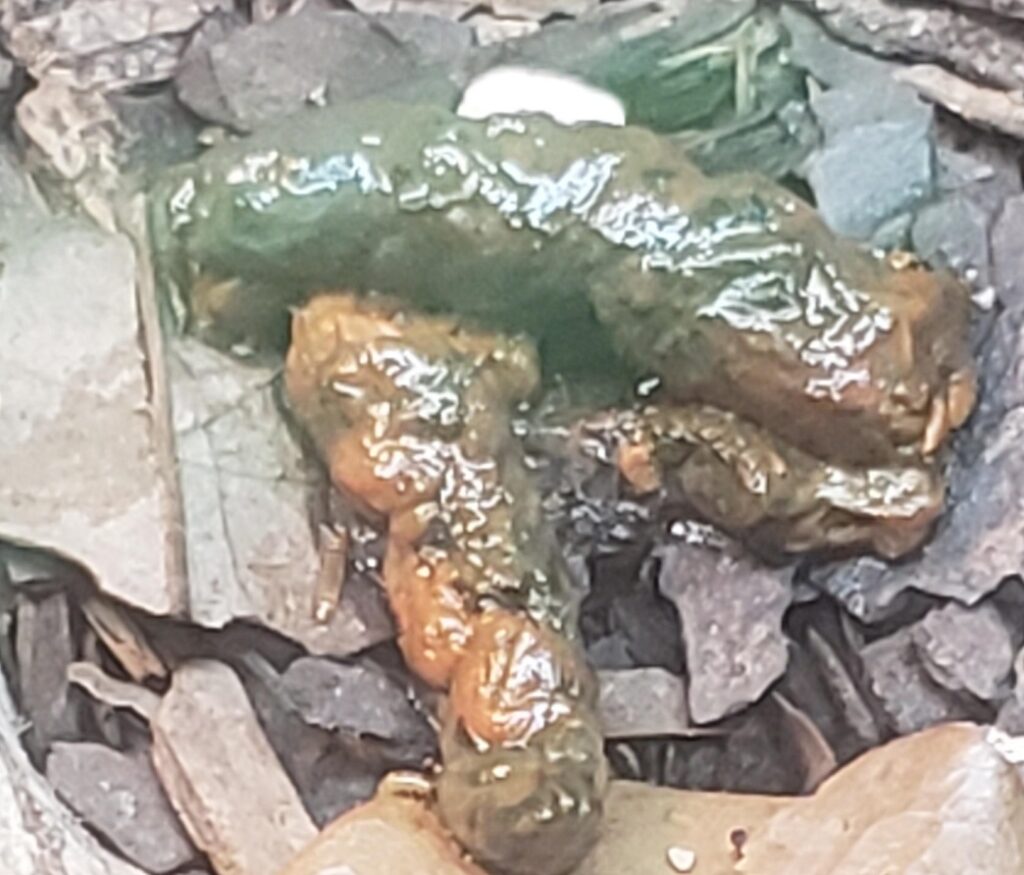
#5 Yellow Bearded Dragon Poop
Bearded dragons need calcium-rich food; however, too much calcium can cause bowel problems.
It can also lead to liver disease or even organ damage. And one of the signs of too much calcium is Yellow Poop.
Once you begin noticing yellow poop in your pet, reduce their calcium intake right away. Limit their calcium consumption depending upon their age.
For example, newly hatched beardies need calcium daily. In Juveniles feeding calcium every other day works fine.
How to Prevent Yellow Bearded dragon Poop?
In comparison, pet parents of adult bearded dragons should limit calcium feeding to once a week.
Also, re-manage the UVB light tube in your pet tank. Ensure there is enough space for them to move in and out from the exposure of the light, depending upon their needs.
Beardies consume Vitamin D from the UVB light, and this Vitamin D helps them in calcium absorption.
Thus, too much exposure to light and excessive calcium can lead to adverse health effects.
- Best Reptile Electrolytes Soak
- Zoo Med's Electrolyte Soak supplies electrolytes, B vitamins, Vitamin C, beta-carotene, a prebiotic, and probiotics for your pet reptiles
- Great for use with newly acquired reptiles to help reduce stress
- Electrolytes help regulate proper hydration and cellular function
- Beta-carotene (Vitamin A) aids in color pigmentation
- B vitamins help the body with proper metabolism
Or, while their poop is all brown and healthy, you can at times notice a yellow substance in poop.
If you observe so, then avoid pulling or snatching that yellow substance.
In females, this yellow substance can be an infertile egg, while in males, it can be a seminal plug.
In both cases, give them a warm water bath and a gentle massage. If it does not help, connect with your vet.
#6 Black Bearded Dragon Poop
If your bearded dragon’s poop is black in color, it means they are not receiving enough plant-based nutrition.
Hence avoid feeding them too many insects and switch to vegetables. If still, their stool remains black, connect with your vet immediately.
#7 Green Bearded Dragon Poop
Green poop in bearded dragons can be a result of two different situations.
Firstly, they are eating too many veggies, and the leafy green vegetables have left a stain on their poop.
Secondly, if their poop is green with an odour, it may indicate hemolytic anemia, anorexia, or liver disease.
Factors That Affects Breaded Dragon poop frequency
You might observe your bearded pet dragon pooping a lot in the following scenarios
- An illness like a parasitic infection can cause constipation in Bearded dragons.
- Also, fluctuation in UVB lights levels can reduce pooping or lead to inconsistency.
- It is because bearded dragons need heat constantly to maintain their body temperature.
- And with noticeable fluctuation, they may start showing adverse results.
- Further, stress and environmental factors like habitat change, etc., can reduce pooping in bearded dragons.
- UVB Light and UVA 2-in-1 Reptile Bulb 100W for Bearded Dragons
- 100 watt heat lam bulb keep your favorite reptile species enjoying healthy UVA and UVB rays
- The self-ballated mercury vapor bulb is dimmed and does not emit harmful UVC radiation
- It aids apeo, activity, beautiful colors, and allows calcium absorption through the production of viti D3. It is also necessary to prevent metabolic bone diseases.
- Works for turtles, bearded dragons, lizards, reptiles, birds, terrariums and aviaries.
- 10,000 hour lifespan
How Long Can a Bearded Dragon Go Without Pooping?
Your Bearded pet dragon should poop once a week and if not, it is not a good sign.
Once your bearded dragon has passed 8 to 10 days without pooping, it is a sign of a health issue.
The next time they poop will result in a very painful expire.
While your pet beardie is not pooping regularly, there could be various possible reasons for the same.
The list may include parasites, a poor diet, stress, and less eating.
How can I make my bearded dragon poop?
The best way to initiate poop in your bearded dragon is either a gentle massage or a long bath.
Gently massage your beardie’s belly for 5 minutes and then leave them to soak/ bath in lukewarm water for 15 minutes.
Or, feed pumpkin puree (diluted) or soft food to your pet dragon.
Or place a few drops of olive oil on their nose and let them lick it. Olive oil act as a laxative.
How can I potty train my Bearded pet dragon?
With patience and consistency, you can potty train your bearded dragon.
With the right understanding and some basic learning, you can potty train them within a short while.
You cannot simply scold and force your bearded pet dragon to poop every day at the exact time.
- Firstly, learn about their daily routine and then plan your own pet caring routine accordingly.
- Bearded dragons typically live in a 12:12. This means 12 hours they will run, jump and stay active; however, in the next 12 hours, they will sleep under rocks.
- Bearded dragons typically live in a 12:12. This means 12 hours they will run, jump and stay active; however, in the next 12 hours, they will sleep under rocks.
- Begin with feeding them thrice a day. Though the frequency can differ, make sure you feed them every day in the exact same minute/ hour. Even though if your pet refuses to eat, do not change its feeding time cycle.
- Along with that, remove the untouched/ left-over food before feeding the next time. Maintain a time cycle for this as well.
- Next, notice when your bearded dragon likes to poop. While some beardies can poop daily, some can go a week without pooping, despite being healthy. For different individuals pooping once, twice, thrice a week can differ.
- Now figure out where your bearded dragon likes to poop. Bearded dragons like to poop in place a little far from their usually playing space.
- They often don’t like staying near to their droppings. Thus, either you can provide them with an isolated space in their cage.
- You can place small napkin squares for them to poop and remove them immediately afterwards. Or, depending upon their pooping frequency and habit, remove them and place them somewhere they will likely poop.
Tip: If your bearded dragon likes to poop outside its cage, do make sure you clean the place right away. As their poop contains salmonella, you cannot afford to get ill with it frequently.
How can I train my bearded dragon to poop daily?
To make sure your bearded dragon is frequently pooping, the best way is to give them a warm bath.
Bearded dragons love baths, and when it is a warm water bath, it activates their motion pressure.
Consider giving them a daily or alternative day bath for a good 15 minutes.
Later on, let them poop in the same water. Further, rinse and dry them. Throw the water in your flush.
Bearded Dragon Turd Texture Chart
| Poo Color | Texture | Description |
| Brown & White Urate | Normal and Healthy | This is how bearded dragon poop must look like |
| Off-White | Dehydrated or Stiff | Let Beardie drink enough water to prevent illness |
| Bloody or Reddish | Food Dye or Parasite infection | Indication of an unhealthy dragon; consult a vet |
| Yellow | Calcium overfeeding | Avoid food or high content calcium supplements |
| Black | Insects overfeeding | Reduce the feeding insect frequency and replace it with green leafy veggies. |
| Green | Dye from green foods | Vegetable staining is normal and indicates a healthy pet. |
Frequently asked questions
Is bearded dragon feces toxic?
Yes, bearded dragon’s poop contains Salmonella germs that are contagious to humans.
If smelled or swallowed, these bacteria can lead to diarrhea and other liver-related diseases.
Should I wash my hands after handling my bearded dragon?
Yes, make sure you wash your hand every time after handling any reptile pet or pets, for that matter.
Why Does My Bearded Dragon poop on Me?
If your bearded dragon is pooping on you, there could be various reasons. The list includes fear, high pooping pressure, or accidental habits.
How often should I bathe my bearded dragon?
You can bathe your bearded dragon thrice a week, or if they absolutely love it, you can even bathe them daily.
Summary
So as now you know a lot about bearded dragon poop, we hope you will keep a check on it hereafter.
Acquainting yourself with your beardie’s poop type and routine will also help you spot irregularities and health signals.
Once you observe abnormalities in their poop, either try resolving it or met your vet as soon as possible.
